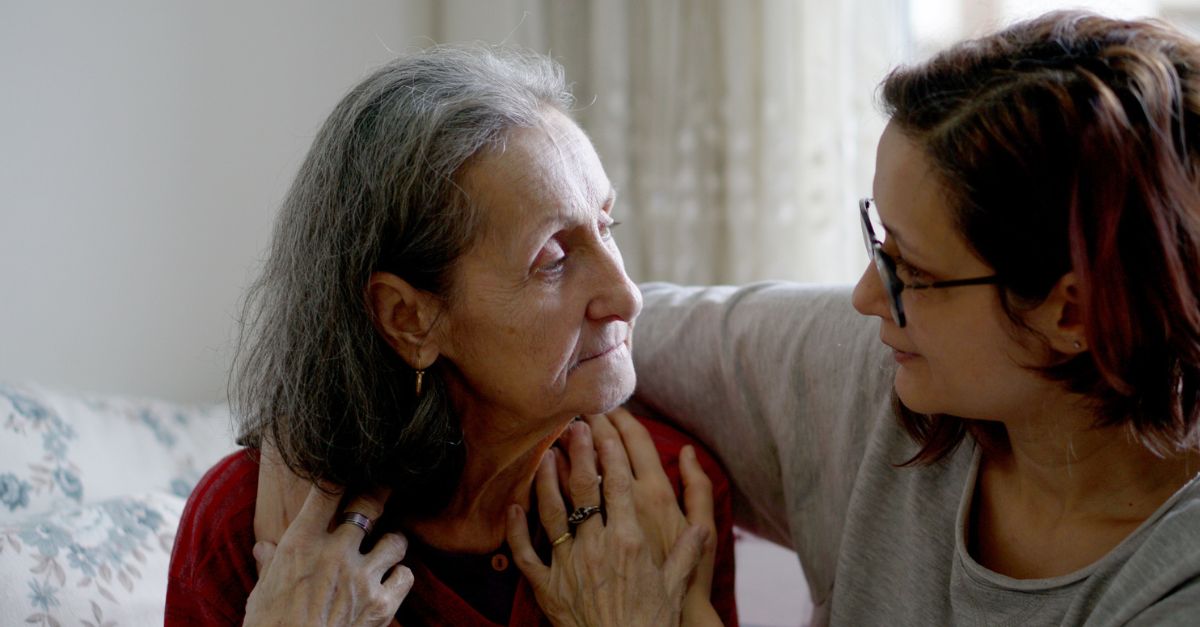Alzheimer’s disease, a progressive brain disorder, continues to be the most common form of dementia. Over time, it negatively impacts memory and thinking, eventually hindering the ability to perform daily activities. According to the Mayo Clinic, approximately 6.9 million people ages 65 and older are experiencing Alzheimer’s disease in America.
Those numbers mean quite a large number of people must face the challenge of how to help someone with Alzheimer’s. To do so, it’s important that caregivers are equipped with practical strategies to help provide the best possible assistance.
Alzheimer’s Daily Routine Tips
The Alzheimer’s Association suggests that daily care for Alzheimer’s patients begins with crafting a plan. Having a consistent structure featuring a list of activities can be helpful when it comes to limiting agitation and boosting the person’s mood.
When creating a daily plan, keep in mind the person’s favorite things to do, their dislikes, strengths, and abilities. Try and find out how they used to organize their day, and attempt to keep it similar. Is there a time of day that works best for them? If so, take note and schedule certain activities accordingly. Make sure they wake up, have their meals, and go to bed at the same time every day, and dedicate enough time to preparing for each. Gather this information and write up a plan.
The progression of the disease, however, will eventually affect the abilities of that person. Be prepared to be versatile and creative, utilizing problem-solving skills when it calls for making changes to the person’s daily routine.
Alzheimer’s Communication Tips
Alzheimer’s disease can cause communication challenges for both the patient and the caregiver. Those with Alzheimer’s may have difficulty understanding the meaning of certain words, choosing the right words in a conversation, staying focused when talking with another person, correctly organizing words in a sentence, blocking out background noises, and more.
Since Alzheimer’s has the potential to change how the affected person communicates, caregivers can use strategies to help manage these changes. The National Institute of Aging offers suggestions such as making eye contact and addressing the person by name.
Stay relaxed, and keep your tone, volume, facial expressions, and body language in check when speaking to someone with Alzheimer’s. If the patient is able, encourage conversation. Show patience if they get angry or are difficult to understand. Speak calmly and clearly, using simple sentences, and try to only ask yes or no questions.
Home Safety for Someone With Alzheimer’s
As time goes on, Alzheimer’s disease makes day-to-day home activities increasingly more difficult for the patient. This can often put them in jeopardy, which means it’s up to the caregivers to enhance the safety of the person’s home.
The National Institute on Aging has an extensive list of safety tips caregivers should consider. After carefully examining each room for any potential safety concerns, they advise caregivers to make an array of changes and make special accommodations to specific living areas, including the bedroom, bathroom, and kitchen. This includes marking the edges of steps with brightly colored tape to help prevent falls, labelling hot and cold water faucets, padding any sharp corners of furniture, using signs to label the different rooms in the home, and the list goes on.
An Overview
In a nutshell, effective Alzheimer’s caregiving consists of formulating routines, practicing clear and compassionate communication, and encouraging safety and independence in the patient’s home. Caregivers should always reach for support when needed and make their own well-being a priority in an effort to provide the best care they can.
Consulting YourTown Health for Alzheimer’s Concerns
If a loved one has or you suspect they have Alzheimer’s disease, a YourTown Health provider can provide diagnosis and treatment. Our behavioral health and primary care departments can both offer assistance. For any Alzheimer’s disease concerns, please find a location near you or message us online.


